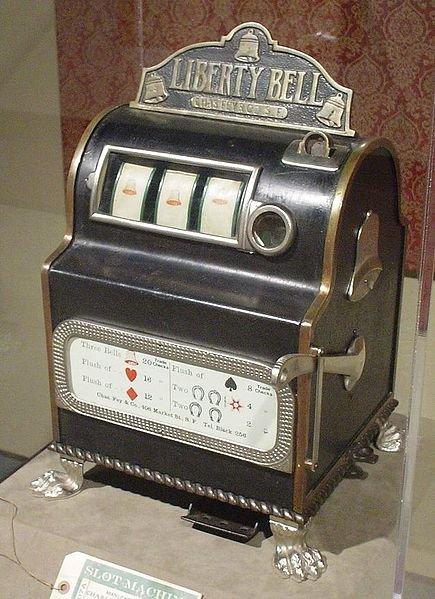Table of Contents
- Understanding the Basics of Game 16 Dice
- Mastering Strategy Tips for Game 16 Dice Success
- Analyzing Probability and Risonsk in Game 16 Dice
- Top Mistakes to Avoid While Playing Game 16 Dice
- Innovative Variations to Enhance Your Game 16 Dice Experience
- Q&A
- The Way Forward
Understanding the Basics of Game 16 Dice
Diving into the realm of dice games, Game 16 Dice stands out as a compelling blend of strategy and chance. This engaging pastime pivots around the number 16, creating a unique playing field where rules challenge players to not only rely on luck but to sharpen their strategic thinking. At its core, the game involves rolling dice with the goal of reaching or achieving totals as close to 16 as possible. Players must navigate various scenarios where calculation and foresight become crucial, making each turn an intriguing balance of risk and reward.
- Objective: Reach a total of 16 without exceeding it.
- Dice Count: Typically uses two or more dice.
- Player Count: Best played with 2-4 players.
| Rule Element | Description |
|---|---|
| Maximum Turns | Each player has up to 5 turns to reach 16. |
| Tie Breaker | Closest to 16 wins; if tied, highest single roll prevails. |
The essence of this game lies in the balance it strikes between simplicity and the depth of engagement it offers. Players begin with rolling their designated dice and decide whether to stay with their current total or risk additional rolls. Each decision mirrors a gamble — the closer they approach the target without overshooting it, the more exhilarating the challenge becomes. Such mechanics do not just entertain but draw in and retain players with their thoughtful approach to what might initially seem like a straightforward pursuit. As participants become accustomed to the potential strategies, the game’s replay value increases dramatically, providing endless hours of enjoyment and mental stimulation.


Mastering Strategy Tips for Game 16 Dice Success
Success in this exhilarating dice game hinges on your ability to outsmart opponents with cunning strategies and a touch of luck. Each roll presents new opportunities to calculate risks and rewards; understanding the game dynamics is vital. Focus on maintaining a balanced approach between offense and defense. Consider tuning your initial bets to gauge the competitive landscape, which allows you to allocate resources more efficiently in subsequent rounds. Embrace adaptability—it’s a game-changer that keeps you one step ahead.
- Study your opponents’ patterns to predict their moves.
- Leverage odds in your favor by identifying high-value targets.
- Avoid impulsive decisions and assess each roll critically.
Resource management is another critical concept to master. Allocate your dice and strategic reserves wisely to maintain sustainability throughout the game. Evaluate your current standing using simple probability calculations and consider when it might be beneficial to hold back or push forward aggressively. Consistently recalibrate your approach to match the evolving dynamics of the board, ensuring that your next move aligns with both present conditions and long-term goals.
| Strategy | Goal |
|---|---|
| Risk Assessment | Minimize Losses |
| Dice Allocation | Maximize Efficiency |
| Opponent Analysis | Predict Moves |
Exploit the power of calculated aggression by setting traps for unwary opponents who fall into predictable patterns. This methodology involves a blend of deceptive plays and calculated risks, ideal for seizing control at opportune moments. Deploying this strategy requires careful observation and a solid understanding of each player’s tendencies. With patience and precision, you can turn promising scenarios into decisive victories, paving the way to triumph.


Analyzing Probability and Risonsk in Game 16 Dice
When it comes to predicting outcomes in Game 16 Dice, understanding probability and associated risks is essential. This game involves a unique set of rules where the probability of each roll can significantly impact the strategy and decisions players make. The game uses a set of 16-sided dice, each face adorned with different symbols and values. This diverse range of outcomes means each roll carries its own inherent risk, making it crucial for players to not only understand the statistical likelihood of each outcome but also to calculate potential consequences of their bets.
To effectively analyze these probabilities, it’s beneficial to explore common strategies used by seasoned players. Consider the following techniques:
- Calculating Expected Value: Determine what you anticipate gaining or losing from a roll, which is the cornerstone of strategic betting.
- Understanding Variance: Acknowledge that outcomes can deviate significantly from the expected value in short-term play.
- Risk Management: Adapt your strategy based on whether you are risk-averse or willing to gamble on high-risk, high-reward scenarios.
An efficient way to visualize and manage these factors is through a simple yet effective table that outlines possible outcomes:
| Outcome | Probability (%) | Potential Gain/Loss |
|---|---|---|
| Symbol A: +10 | 12.5 | Gain |
| Symbol B: -5 | 18.75 | Loss |
| Symbol C: +5 | 25 | Gain |
| Symbol D: 0 | 43.75 | No Change |


Top Mistakes to Avoid While Playing Game 16 Dice
In games that involve a tactical setup like this one, strategic calculation is paramount. However, a common oversight is underestimating the odds. Many players jump into decisions without fully understanding the statistical probabilities influencing the game. Before you roll, consider the likelihood of each outcome and how it aligns with your overall strategy. Dive into the numbers; rather than relying on luck, make informed decisions that improve your chances of victory.
Another frequent blunder is focusing solely on defense. While it’s crucial to protect your assets, excessive caution can hinder your offensive game. This can lead to missed opportunities, where taking a calculated risk might pave the way to success. Balancing defense with a proactive strategy can open new paths to win the game. Keep an eye on potential offensive moves to ensure you remain competitive and unpredictable.
- Don’t forget to adapt your strategy as the game progresses. Flexibility can be a defining factor.
- Avoid neglecting opponent analysis. Observing your competitors’ tactics can give insight into their weaknesses.
- Steer clear of tunnel vision. Engaging with the entire board is vital to mastering the game’s intricacies.
| Common Mistake | Solution |
|---|---|
| Ignoring Statistical Odds | Calculate before you play |
| Overly Defensive Play | Balance offense and defense |
| Tunnel Vision | Stay aware of the entire board |


Innovative Variations to Enhance Your Game 16 Dice Experience
One of the most exciting ways to refresh your experience with Game 16 Dice is to introduce themed challenges. These challenges can be based on popular culture, historical events, or even fantastical settings. Imagine rolling under the guise of an ancient Roman emperor, each dice decision leading your empire to expand or crumble. By infusing these storytelling elements, you not only increase the strategic depth but also create a captivating narrative that draws players deeper into the game.
Adding a team-based dynamic can also change the pace of play. Instead of every player vying for individual victory, consider forming alliances where teams strategize to outperform their opponents. This alteration demands a collaborative mindset, giving players the chance to practice negotiation and collective decision-making. To balance team play, introduce roles where each member is responsible for specific aspects of the game, like resource management or offensive maneuvers.
Elevate your rounds with custom dice modifications. Swap out traditional dice for those with unique symbols or effects, which can trigger special events or abilities when rolled. For instance, replacing a standard ”6″ with a “Wildfire” symbol could add a twist, such as reshuffling resources or unlocking hidden game features. Experimenting with these variations not only spices up gameplay but also offers a new level of strategy and unpredictability for players to navigate.




0 Comments